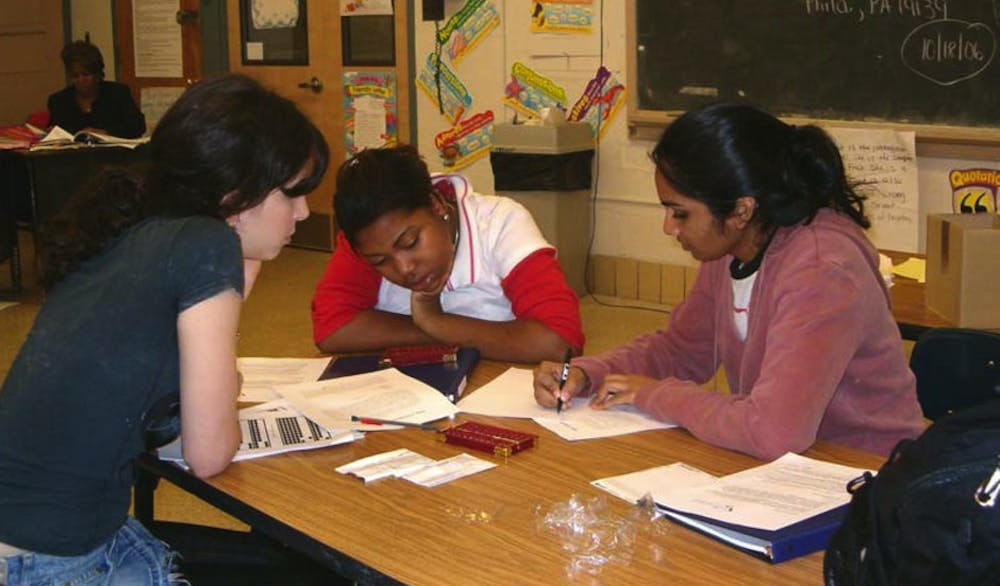This spring, students in West Philadelphia will take basketball from the court to the computer screen.
With the help of Penn’s outreach program Moelis Access Science, they will be simulating the parabolic trajectory of a basketball and learning the physics behind it using two-dimensional equations of motion.
This computer science curricular module is just one of many in development at the Moelis Access Science program, which has been working since 1999 to “improve the teaching of Science, Technology, Engineering, and Mathematics (STEM) in Philadelphia,” Moelis Access Science Director and Mathematics professor Idris Stovall said. “The program creates a curriculum and provides a vehicle or model for how higher education institutions can partner with K-12 schools and their local communities.”
The program is working with the School of Engineering and Applied Sciences to expand its scope to include computer science partnerships, which will be coordinated by Computer Science professor Jean Griffin. She joins Stovall, who directs the physical science partnerships, as well as Jamie Shuda, the life sciences partnerships director.
“Griffin has taught many SEAS computer sciences courses, including an [Academically Based Community Service] course … and has secured, with SEAS and Graduate School of Education faculty, grants from the National Science Foundation and Google,” wrote Netter Center Associate Director Cory Bowman in an email.
The funding supports computer science partnerships with local high school students and teachers through classroom and after school support and summer workshops. This summer, the Netter Center also secured a grant from the Lenovo Foundation that enabled Griffin to join Moelis Access Science full-time.
Housed in the Netter Center, Moelis Access Science offers ABCS courses in science, technology, engineering and mathematics in which students receive credit for working in partner schools. Additionally, selected undergraduates can participate in the paid fellows program — in which they “partner with math and science teachers to co-plan and implement lessons in classes, assist with after-school programming, [create] curricular modules to be implemented in non-standard classes, and serve as TAs for ABCS courses,” Stovall said. Moelis Access Science also helps teachers develop class content and share best practices and works with a Netter Center evaluator to measure the impact of its various services.
To begin implementing computer science in its curriculum, Moelis Access Science will combine resources from math and physics ABCS courses with Scratch, a software that utilizes a building-block approach to teach computer science.
In addition, through a joint effort between the Netter Center and SEAS, computer-science-based ABCS courses will be offered in the spring.
“The tools for computer science are fundamental to a lot of STEM disciplines, and we really wanted to do a more effective job of promoting how computer science is integrated,” Stovall said. “We try to have as many real world applications and research, where applicable, tied in to our curricular resources,” he added.
The basketball simulation was just one of many curricular modules that were piloted in Philadelphia high schools last spring and at the Philadelphia Science Festival and the Franklin Institute this summer. According to Stovall, these modules will be implemented in the classroom and “other places where it makes sense to include computing sciences, such as fellows’ partnerships with high school teachers.”
Next semester, the program hopes to have partnerships with schools such as Lea Elementary School, University City High School, and potentially the Science Leadership Academy, through a combination of school day and after-school programs.
Moelis Access Science will also participate in Penn’s first STEM outreach symposium on October 25th. The event will “showcase the multitude of STEM outreach initiatives that we know of across campus, and find ways for better collaboration across the university,” Stovall said.



